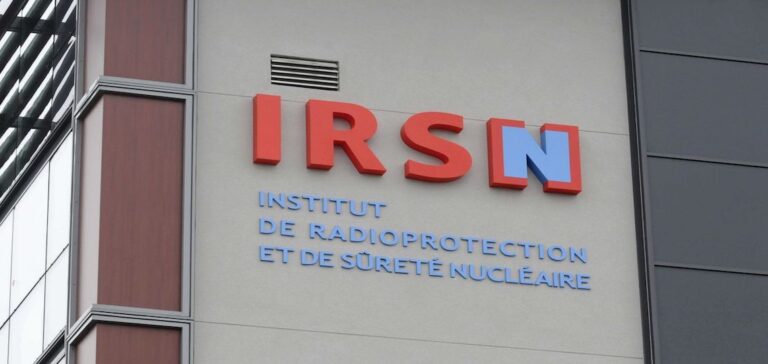The contested merger of the two institutions responsible for nuclear safety in France was rejected by Parliament in April: the Elysée returned to the issue on Wednesday, announcing a new bill to this effect “by autumn”.
Nuclear fusion: when IRSN and ASN become a major independent authority
This operation would bring together the Institut de Radioprotection et Sûreté Nucléaire (IRSN), a safety expert, and the Autorité de Sûreté Nucléaire (ASN), responsible for decisions on power plants, into a new “major independent authority”, according to a press release from the French President.
This authority, “whose financial and human resources would be strengthened (…) will enable nuclear safety to be adapted to the three challenges of the revival” of civil nuclear power called for by Emmanuel Macron, according to the same source. These “challenges” are “the extension of the existing fleet”, the “construction of new EPRs”, new-generation reactors, and “the development of innovative small modular reactors”, listed the executive.
The Nuclear Policy Council (CPN) meeting at the Elysée Palace on Wednesday “confirmed the government’s determination to move forward in this direction, while ensuring that all the missions of the ASN and IRSN are preserved”, according to the same source.
Towards a bill to merge nuclear institutions: challenges and disputes
The CPN therefore “tasked the Minister for Energy Transition (Agnès Pannier-Runacher, editor’s note) with initiating consultations with stakeholders and parliamentarians with a view to preparing a bill by autumn”, added the Presidency.
This announcement came a week after the authors of a parliamentary report recommended merging the two institutions, in view of the expected increase in the workload involved in monitoring present and future power plants.
The reform, which the Elysée Palace wanted, was rejected by Parliament in April, amid criticism of the method and concerns about the transparency and quality of expertise. Since the announcement of the President’s intentions, IRSN employees, nuclear experts and members of parliament have been up in arms against the proposed merger, seeing it as a loss of independence, competence and the ability of experts to express their views.
Towards a reform of nuclear safety after the rejection of the part planned in the stimulus bill
Last week, IRSN’s trade unions described the parliamentary report as “partial and biased”. In May, after much to-ing and fro-ing, Parliament adopted the nuclear revival bill. But despite the government’s determination, a section providing for nuclear safety reform had been rejected the previous month.
At the time, the French Ministry of Energy Transition deemed it “too early” to decide on the next steps for this reform, without therefore burying it definitively. At the end of the Nuclear Policy Council on Wednesday, the French Presidency also revealed that it had chosen the Bugey nuclear site (Ain) as the site for the third pair of future new-generation EPR2 reactors. The sites of Penly (Seine-Maritime) and Gravelines (Nord) had already been designated for the construction of two EPR2s each.
In February 2022, two months before being re-elected, Mr. Macron announced a vast plan to revive civil nuclear power, with the construction of 6 to 14 new-generation reactors by 2050. “The location of the first phase of the EPR2 construction program has now been decided”, noted the Elysée Palace.
Tricastin and Bugey in the running to host future nuclear reactors: challenges and disappointments
EDF had mentioned either Bugey or Tricastin (Drôme) for this third facility. “Technical studies and analyses will continue at the Tricastin site with a view to hosting future nuclear reactors,” the statement said.
In a press release, Marie-Pierre Mouton, President of the Drôme Departmental Council, expressed her “great disappointment” on behalf of Tricastin and “an entire catchment area spanning four departments and three regions”, acknowledging that the Bugey technical dossier “had a slight head start”. “We are ready to welcome the next generation of EPRs, which will necessarily be scheduled very quickly,” she said.
Earlier on Wednesday, EDF CEO Luc Rémont told MPs that his recently renationalized company would have to boost investment to €25 billion a year (from €16.39 billion in 2022). According to Rémont, this is the level of investment required to meet the group’s many industrial challenges, starting with the construction of the new EPR2 plants.






















